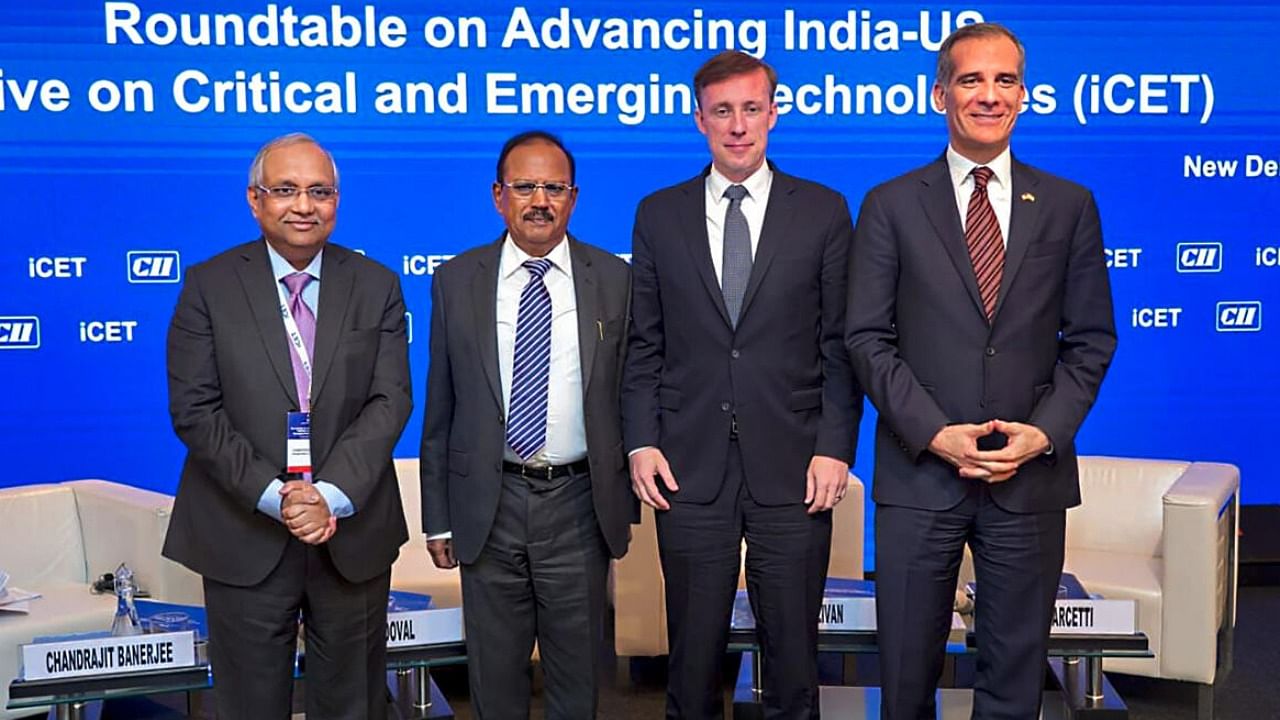
The meeting between Prime Minister Narendra Modi and President Joe Biden in Washington D.C. next week is likely to see the United States lifting restrictions that in the past hindered its cooperation with India in advanced technology, including in the fields of defence, artificial intelligence, space, quantum computing and telecommunication.
“As we look ahead to the state visit Prime Minister Modi will be embarking upon in Washington next week... a number of the deliverables at the visit are not just bullet points on a page,” Biden’s National Security Advisor Jake Sullivan said in New Delhi on Tuesday. “They are fundamentally designed to remove those obstacles in defence trade, in high-tech trade, in investment in each of our countries, in taking away obstacles that have stood in the way of our scientists and researchers.”
Sullivan, who is on a visit to New Delhi, had a meeting with his counterpart, Ajit Doval, on Tuesday. They reviewed preparations for the Modi-Biden meeting, which would take place in the White House on June 22.
Also Read | PM Modi's US visit will set new benchmarks for bilateral ties between the nations, says Pentagon
Doval and Sullivan lead the US-India initiative on Critical and Emerging Technology (iCET), which was announced by Modi and Biden during a meeting in Tokyo in May 2022 to promote cooperation in artificial intelligence, quantum computing, semiconductors, telecommunications, defence and space.
The Biden Administration agreed to launch the new initiative as New Delhi had been repeatedly pointing out that India had to rely more on Russia only because the US and the other western nations had in the past declined to share with it advanced military hardware and critical technologies. The Modi Government had put forward the argument in response to criticism over its refusal to join the US and the rest of the West in criticising Russia for its military aggression against Ukraine.
The US already approved the General Electric Company sought to produce in India the engines to power the combat aircraft manufactured by Hindustan Aeronautics Limited – thus paving the way for the signing of a deal when Biden will host Modi at the White House on June 22.
The Biden Administration is also working with the American Congress to lower the barriers hindering the export of High-Performance Computing technology and source code from the US to India.
“The US and India are poised to lead in the clean energy transformation, shore up and diversify global semiconductor supply chains and supply chains in other critical goods, and lead the revolution in AI, advanced computing, biotech and quantum,” Sullivan said as he and Doval later addressed an event hosted by the Confederation of Indian Industries.
India and the US earlier this year signed a Memorandum of Understanding (MoU), which would pave the way for joint projects and technology partnerships for manufacturing semiconductors.
"We have been able to kickstart the Indo-US quantum coordination mechanism, we signed an MoU on semiconductors, the public-private dialogue on telecom engaging stakeholders from the government, industry and academia to further open collaboration in open RAN, 5G and 6G,” said Doval.
Sullivan called on Modi on Tuesday. He is also likely to have a meeting with External Affairs Minister S Jaishankar before leaving New Delhi.
The two National Security Advisors “encouraged stakeholders on both sides to strive for technology value chain partnerships that would lead to co-development and co-production of high technology products and services in both countries”, according to a press release issued by the Ministry of External Affairs in New Delhi.
